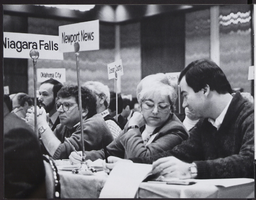Search the Special Collections and Archives Portal
Search Results
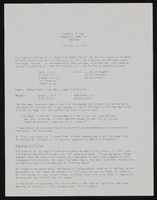
Economic Opportunity Board of Clark County (Nev.): memos, agendas, and meeting minutes
Date
Archival Collection
Description
From the Clark County Economic Opportunity Board Records -- Series I. Administrative. This folder contains memos, agendas, and minutes from meetings of the Clark County Economic Opportunity Board from February 1971 through January 1973.
Text

Transcript of interview with Donna Henshaw by Jeff Thompson, February 12, 1978
Date
Archival Collection
Description
On February 12, 1978, collector Jeff Thompson interviewed short-order cook and maid, Donna Henshaw (born on February 11, 1937 in Appleton, Minnesota) in the collector’s home in Las Vegas, Nevada. This interview covers the history and development of the Las Vegas area.
Text
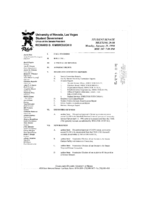
Meeting minutes for Consolidated Student Senate University of Nevada, Las Vegas, January 25, 1999
Date
Archival Collection
Description
Text
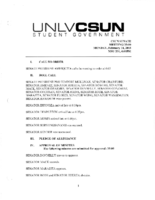
Meeting minutes for Consolidated Student Senate, University of Nevada, Las Vegas, February 14, 2005
Date
Archival Collection
Description
Text
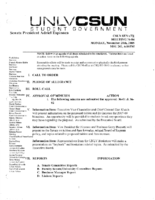
Meeting minutes for Consolidated Student Senate, University of Nevada, Las Vegas, November 28, 2005
Date
Archival Collection
Description
Text
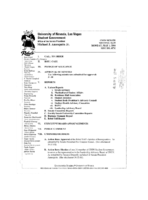
Meeting minutes for Consolidated Student Senate, University of Nevada, Las Vegas, May 03, 2004
Date
Archival Collection
Description
Text

Meeting minutes for Consolidated Student Senate, University of Nevada, Las Vegas, August 06, 2001
Date
Archival Collection
Description
Text
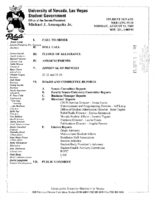
Meeting minutes for Consolidated Student Senate, University of Nevada, Las Vegas, August 11, 2003
Date
Archival Collection
Description
Text
Stuart and Flora Mason Photographs
Identifier
Abstract
The Stuart and Flora Mason Photographs (1940-1999) contain photographs of hotels, casinos, and other buildings constructed by Taylor International Corporation, which was owned by the Mason Family. The photographs depict the Aladdin, Venetian, Tropicana, Riviera, MGM Grand, and International hotels and casinos in Las Vegas, Nevada. The photographs also depict buildings in Miami and Coral Gables, Florida, and San Juan, Puerto Rico.
Archival Collection

